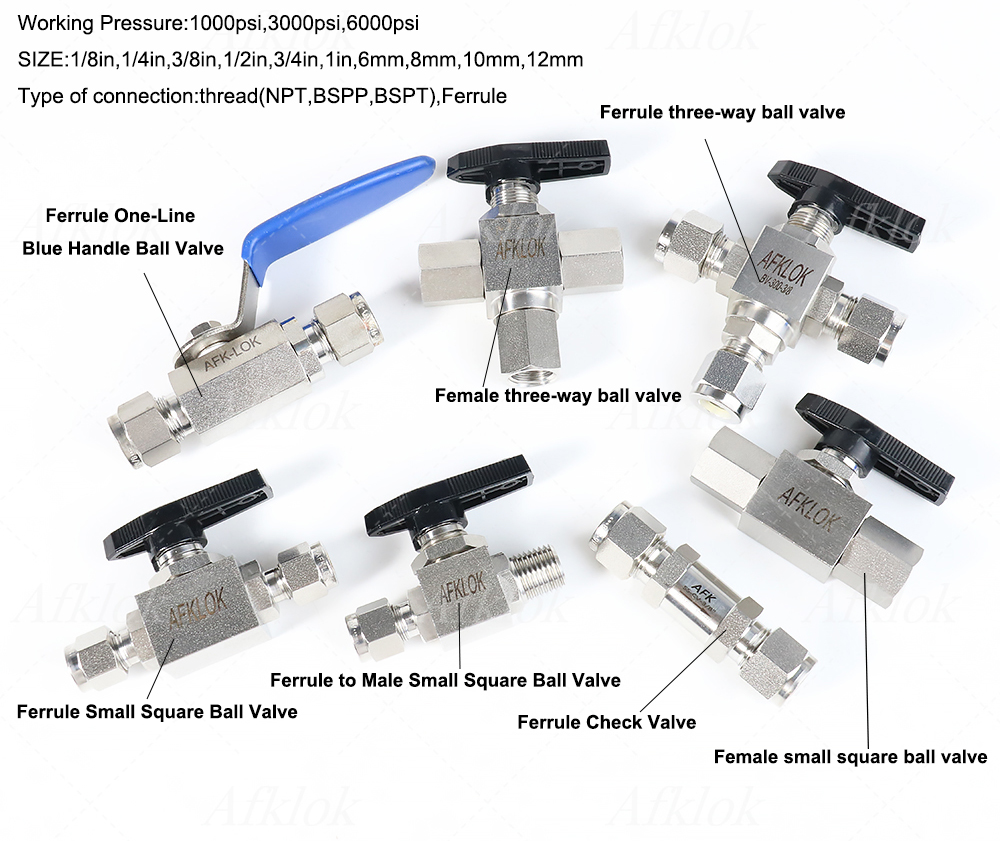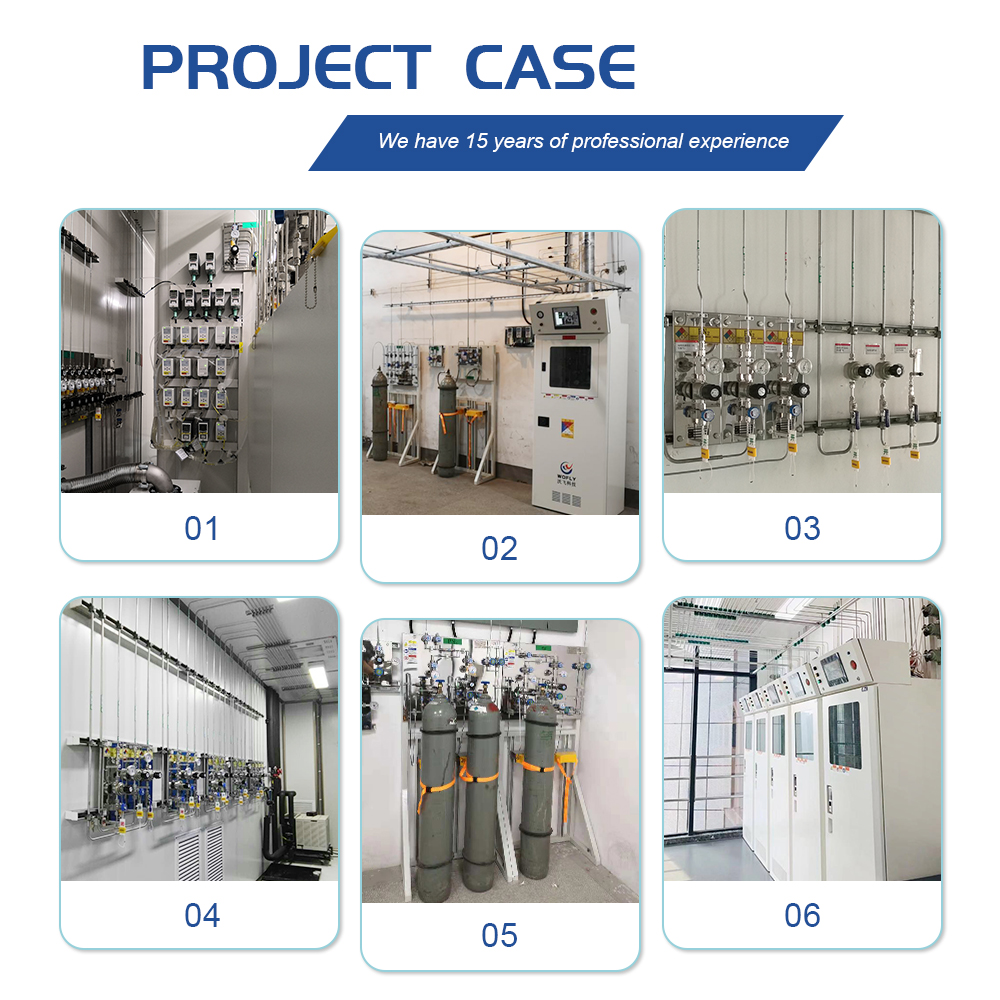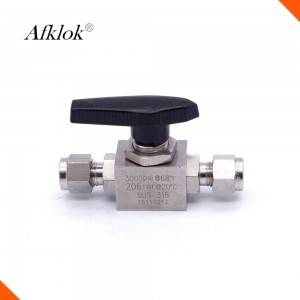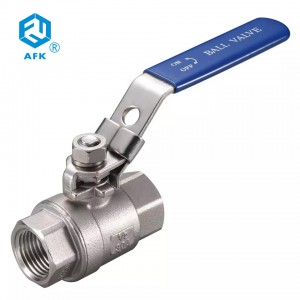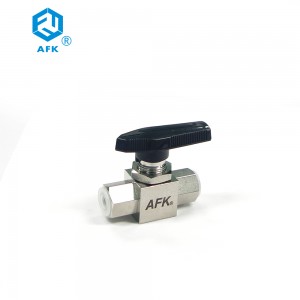2-Way Ferrules Ball Valve Fractional Metric 316L 1/4in 1/8in 1/2in 3/8in 3mm 6mm 8mm 10mm 12mm Panel Mountable
Features
1.Standard black handle with arrow to indicate the direction of the fluid
2. Packing bolts allow easy packing adjustment.
3. Panel mountable
4. Dual flow design with polished monobloc ball ensures seal shut-off performance.
5. Faces are available in ferrule, BSPT or NPT internal and external threads.
6. Straight-through, right-angle ball valves are used for on/off function.
7. 3-way ball valve is used for directional function.
8. body is made of stainless steel 316
9. Pressure rating: 1000psig and 2000psig.
10. Fitted with Viton seals
11. 100% factory tested
APPLICATIONS
Chemical, petroleum, electric power, water treatment, food and pharmaceutical, semiconductor and other industries 126.
Suitable for high cleanliness requirements (such as laboratories, biomedical equipment)
FAQ
1. What is the difference between 316 and 316L stainless steel?
316 Stainless Steel: Higher carbon content, suitable for general corrosion resistant environments.
316L stainless steel: low carbon version, stronger resistance to intergranular corrosion, especially suitable for welding or high temperature applications (e.g. chemical, marine environment).
2. How to choose the sealing material of ferrule ball valve?
Fluoroelastomer (FKM): high temperature resistant (~200°C), oil and chemical resistant, suitable for most industrial fluids.
Polytetrafluoroethylene (PTFE): resistant to strong acids and alkalis, but may become brittle at low temperatures, suitable for corrosive media.
3. Can it be used in oxygen or hydrogen systems?
Yes, subject to the following conditions:
Oxygen: degreasing and cleaning (in accordance with ASTM G93) is required to avoid combustion caused by grease.
For hydrogen: leak proof design with no dead space in the valve body to prevent hydrogen build-up.
4. What is the maximum pressure and temperature resistance?
Standard model: 20MPa (3000PSI), -20℃~100℃.
High pressure/high temperature customisation: up to 25MPa (3600PSI) or 480°C (special materials and seals required).
5. What do I need to pay attention to when installing?
Ferrule connection: Make sure the pipeline cutout is flat and the ferrule nut is tightened with even strength to avoid leakage.
Flow direction requirement: Some ball valves have flow direction restriction (arrows marked on the valve body), need to be installed according to the instructions.
6. How to maintain and repair?
Regular inspection: sealing, handle operation is smooth.
Lubrication: When used at high temperature or high frequency, the valve stem can be filled with high temperature grease (e.g. PTFE based).
Cleaning: When used for food or medicine, the inner wall of the valve body needs to be cleaned regularly.
7. Why do I feel stuck when opening and closing the valve?
Possible causes:
Impurities enter the valve cavity (need to be disassembled and cleaned).
Deterioration of seals (need to be replaced).
PTFE hardens at low temperatures (replace with FKM seals).
8. Can it be used in food or ultrapure water systems?
Yes, subject to the following criteria:
Food grade: material certification (e.g. FDA, EC1935).
Ultra-pure water: inner wall electrolytically polished (Ra ≤ 0.8μm) to avoid contaminant residues.






